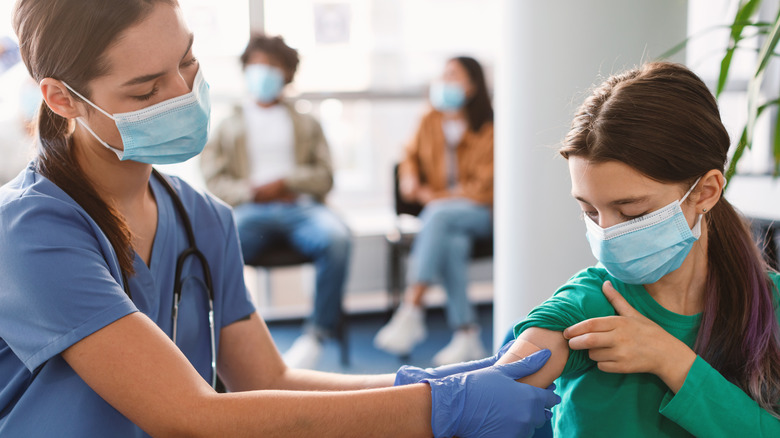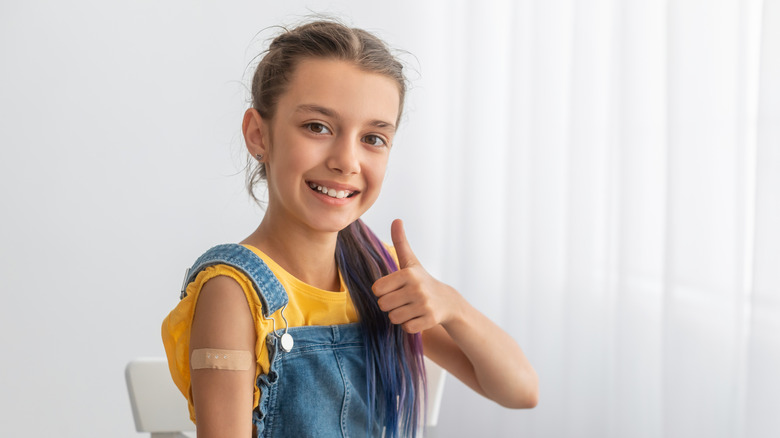Here's How The COVID-19 Vaccine Differs For Children Under 12
The Pfizer-BioNTech COVID-19 vaccine may soon be authorized for young children aged 5 to 11 after a Food and Drug Administration (FDA) expert panel voted to endorse the vaccine earlier this week — but how will the dosage differ from the vaccine approved for older children and adults?
In Pfizer's clinical trials, the vaccine was found to be safe and effective and had an efficacy rate of nearly 91%, which is very similar to the efficacy for people 12 and over (via CNN). The key difference, however, is that the shot for younger children contains a much lower dosage. Unlike the 30-microgram dose approved for teenagers and adults, the dose for children between the ages 5 and 11 is 10 micrograms per shot.
"As we are fond of saying in pediatrics: Children are not small adults. Children are children," Dr. James Versalovic, the interim pediatrician-in-chief at Texas Children's Hospital, told CNN. "Their bodies are developing and will react differently, and we need to treat them differently." According to data from the clinical trials, the lower dose generated a robust immune response with minimal side effects. In fact, researchers found that the children participating in the trial actually experienced fewer side effects, like fever and chills, than teenagers and young adults.
What about children on the cusp of 11 and 12 years old?
The age cut off has created some confusion among parents of 11-year-olds who are on the verge of turning 12, however. Since the correct dosage is determined by age and not weight, some parents aren't sure if their children should get the lower dose or wait until they turn 12 to get the full dose of the vaccine (via New York Times).
According to experts in immunology and infectious diseases, children on the cusp of turning 12 should get the appropriate dose for their current age group. Given the unpredictability of the virus and its many emerging variants, delaying getting the COVID-19 vaccine until your child turns 12 could put them at risk. That's why it's best for your child to get whichever dose is immediately available to them. The sooner they can get vaccinated, the faster they'll be protected from COVID-19.
"If I had a family member in that situation, I would advise them just to get the dose that's authorized for their current age," Dr. Bernhard Wiedermann, an infectious disease specialist working on the Pfizer trial at Children's National in Washington, DC, told CNN. "I think we still have reasonable risk that we're going to see cases start to increase again sometime in the next few months."


